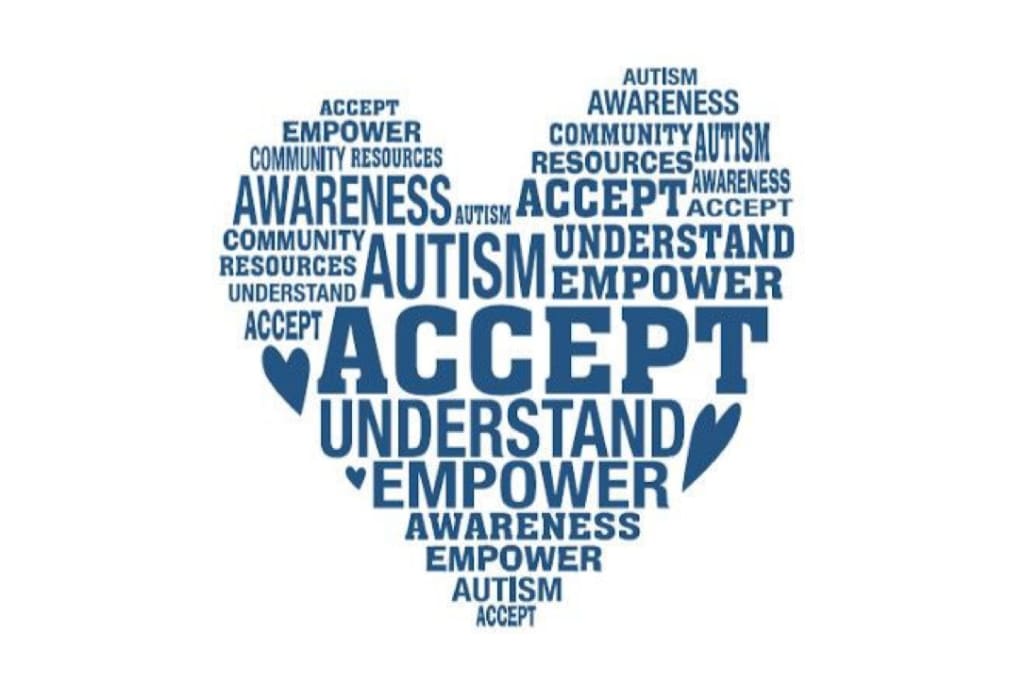My Child Has Autism. This is What I Wish You Knew About Them.
All this must be done with love, empathy and a lot of support and dedication from those who love them. No one should treat with indifference or bullying. We are in constant human evolution and soon all this will be banished from the face of the earth, diseases and genetic errors will no longer exist.

Autism is a child's neurological development disorder that generates changes in communication, difficulty (or absence) of social interaction and changes in behavior, being usually identified between 12 and 24 months of age.
People with autism may have some specific characteristics, such as maintaining little eye contact, having difficulty speaking or expressing ideas and feelings, and being uncomfortable in social situations, in addition to being able to present repetitive behaviors, such as swaying their body forward and back for a long time. back, for example.
It is important to emphasize that autism is not a disease, but a different way of expressing and reacting, which, despite not having a cure, does not worsen with advancing age. However, the sooner the diagnosis is made and the treatment started, the better the person's quality of life and autonomy.
For most parents, one of the most trying times in their lives is during their child’s teenage years. When puberty hits, young adults go through serious changes in their bodies and minds, and parents have little or no control over many situations. In an autistic child, puberty is no different. Although your autistic child is not experiencing puberty in quite the same ways as others his or her age, major hormonal changes still occur in the body. This can lead to extreme results, and this can be either good or bad depending on how your child reacts to the new hormone levels.
One of the scariest side effects of changes in an autistic person’s body is the onset of seizures. Many autistic individuals experience seizures from birth to adulthood, but even if your child does not suffer from these episodes, he or she may begin to experience seizures during puberty and afterwards, due to the new levels of hormones in the body. Strange as it may sound, violent shaking seizures are not necessarily a bad thing. Almost a quarter of autistic children experience seizures, but many go undetected because they are not textbook versions of seizures. If you recognize that your child is experiencing a seizure, you can do something about it, and doctors will be able to better treat your child. However, if the seizures are subconsciously happening, you and your child may not realize it. The result of these small hidden seizures can be a loss in function, which can be devastating, especially if you child was improving before puberty. Regular check-ups during puberty, therefore, are extremely important.
The changes might not necessarily be a bad thing. New hormone levels in the body and the other changes associated with puberty might help your autistic child grow and succeed in areas in which he or she normally had no skill or interest. Many parents report that their child’s behavior improved, and that learning in social settings was easier.
The important thing about puberty is to learn to monitor the changes in your child very carefully and to ask your doctor lots of questions. Remember that puberty is a difficult experience for any young adult, and so it will be even more difficult for someone with autism. Try to practice patience and understanding with your teen, and be careful to regulate his or her autism so that the transition from child to adult will go more smoothly.
In short:
Although autism has no cure, treatment, when performed correctly, can help improve a person's quality of life, communication skills, and autonomy.
All this must be done with love, empathy and a lot of support and dedication from those who love them. No one should treat with indifference or bullying. We are in constant human evolution and soon all this will be banished from the face of the earth, diseases and genetic errors will no longer exist.
Another easily noticed reality is the prejudice with autistic people. This is felt on the skin by family members. In addition, it is a type of prejudice that does not choose social class, sexual orientation or skin color. Still, these can be factors that further exacerbate discrimination. We ask everyone to be aware and update themselves on the subject, we do not always realize that it is someone with autism.
Many people still believe that autism represents a kind of condemnation with no return and that the diagnosis means a life without opportunities - and it is exactly this type of misinformation and myth that fuels prejudice. The evaluation is by pediatrician and child neurologist, Clay Brites.
For the specialist, World Autism Awareness Day (April 2nd) helps society to better reflect on advances and, above all, on what still needs to be improved to provide broad and transdisciplinary support and this group of people and their families. The date is recognized by the World Health Organization (WHO) on April 2nd.
Thanks for reading..
Until the next story.
About the Creator
Georgenes Medeiros
53 years old, divorced, graduated in Business Administration, writer, translator, available for new challenges.
Despite everything still in search of a soul mate.
If it's you call me....






Comments
There are no comments for this story
Be the first to respond and start the conversation.